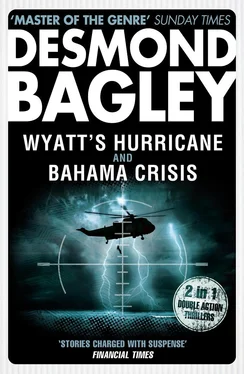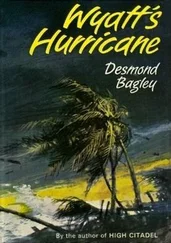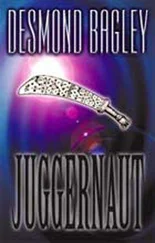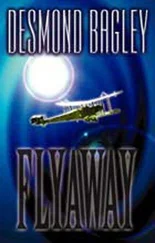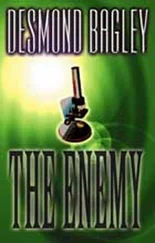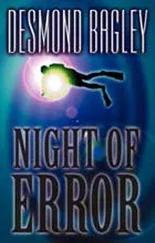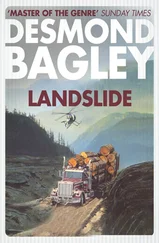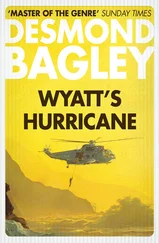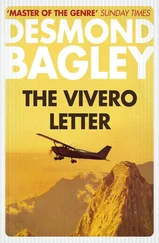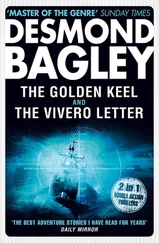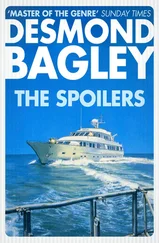Now he found he was moving against the stream and progress was more difficult and would become even more so as he approached the disturbed city centre. He looked ahead and saw the blazon of smoke in the sky spreading over the central area – the city was beginning to burn. But not for long, he thought grimly. Not if Wyatt is right.
He pressed on into the bedlam that was St Pierre, pushing against the bodies that pressed against him and ruthlessly using the butt of his rifle to clear his way. Once he met a soldier fighting his way clear and they came face to face; Causton reversed his rifle and manipulated the bolt with a sharp click, thinking, what do I do if he doesn’t take the hint? The soldier nervously eyed the rifle muzzle pointing at his belly, half-heartedly made an attempt to lift his own gun but thought better of it, and retreated, slipping away into the crowd. Causton grinned mirthlessly and went on his way.
He was not far from the Imperiale when the press of the crowd became so much that he could not move. Christ! he thought; we’re sitting ducks for a shell-burst. He tried to make his way back, but found that as difficult as going forward – something was evidently holding up the crowd, something immovable.
He found out what it was when he struggled far enough back, almost to the corner of the street. A military unit had debouched from the side street and formed a line across the main thoroughfare, guns pointing at the crowd. Men were being hauled out of the crowd and lined up in a clear space, and Causton took one good look and tried to duck back. But he was too late. An arm shot out and grabbed him, pulling him bodily out of the crowd and thrusting him to join the others. Serrurier was busy rounding up his dissolving army.
He looked at the group of men which he had joined. They were all soldiers and all unwounded, looking at the ground with hangdog expressions. Causton hunched his shoulders, drooped his head and mingled unobtrusively with them, getting as far away from the front as possible. After a while an officer came and made a speech to them. Causton couldn’t understand a word of it, but he got the general drift of the argument. They were deserters, quitters under fire, who deserved to be shot, if not at dawn, then a damn’ sight sooner. Their only hope of staying alive was to go and face the guns of Favel for the greater glory of San Fernandez and President Serrurier.
To make his point the officer walked along the front row of men and arbitrarily selected six. They were marched across to the front of a house – poor, bewildered, uncomprehending sheep – and suddenly a machine-gun opened up and the little group staggered and fell apart under the hail of bullets. The officer calmly walked across and put a bullet into the brain of one screaming wretch, then turned and gave a sharp order.
The deserters were galvanized into action. Under the screams of bellowing non-coms they formed into rough order and marched away down the side street, Causton among them. He looked at the firing squad in the truck as he passed, then across at the six dead bodies. Pour encourager les autres , he thought.
Causton had been conscripted into Serrurier’s army.
Dawson was astonished at himself.
He had lived his entire life as a civilized member of the North American community and, as a result, he had never come to terms with himself on what he would do if he got into real trouble. Like most modern civilized men, he had never met trouble of this sort; he was cosseted and protected by the community and paid his taxes like a man, so that this protection should endure and others stand between him and primitive realities such as death by bullet or torture.
Although his image was that of a free-wheeling, all-American he-man and although he was in danger of believing his own press-clippings, he was aware in the dim recesses of his being that this image was fraudulent, and from time to time he had wondered vaguely what kind of a man he really was. He had banished these thoughts as soon as they were consciously formulated because he had an uneasy feeling that he was really a weak man after all, and the thought disturbed him deeply. The public image he had formed was the man he wanted to be and he could not bear the thought that perhaps he was nothing like that. And he had no way of proving it one way or the other – he had never been put to the test.
Wyatt’s hardly concealed contempt had stung and he felt something approaching shame at his attempt to steal the car – that was not the way a man should behave. So that when his testing-time came something deep inside him made him square his shoulders and briskly tell Sous-Inspecteur Roseau to go to hell and make it damn’ fast, buddy.
So it was that now, lying in bed with all hell breaking loose around him, he felt astonished at himself. He had stood up to such physical pain as he had never believed possible and he felt proud that his last conscious act in Roseau’s office had been to look across at the implacable face before him and mumble, ‘I still say it – go to hell, you son of a bitch!’
He had recovered consciousness in a clean bed with his hands bandaged and his wounds tended. Why that should be he did not know, nor did he know why he could not raise his body from the bed. He tried several times and then gave up the effort and turned his attention to his new and wondrous self. In one brief hour he had discovered that he would never need a public image again, that he would never shrink from self-analysis.
‘I’ll never be afraid again,’ he whispered aloud through bruised lips. ‘By God, I stood it – I need never be afraid again.’
But he was afraid again when the artillery barrage opened up. He could not control the primitive reaction of his body; his glands worked normally and fear entered him as the hail of steel fell upon the Place de la Libération Noire. He shrank back on to the bed and looked up at the ceiling and wondered helplessly if the next shell would plunge down to take away his new-found manhood.
Not far away, Wyatt sat in the corner of his cell with his hands over his ears because the din was indescribably deafening. His face was cut about where broken glass had driven at him, but luckily his eyes were untouched. He had spent some time delicately digging out small slivers of glass from his skin – a very painful process – and the concentration needed had driven everything else out of his mind. But now he was sharply aware of what was going on.
Every gun Favel had appeared to be firing on the Place de la Libération Noire. Explosion followed explosion without ceasing and an acrid chemical stink drifted through the small window into the cell. The Poste de Police had not yet been hit, or at least Wyatt did not think so. And he was sure he would know. As he crouched in the corner with his legs up, grasshopper fashion, and his face dropped between his knees, he was busy making plans as to what he would do when the Poste was hit – if he still remained alive to do anything at all.
Suddenly there was an almighty clang that shivered the air in the cell. Wyatt felt like a mouse that had crawled into a big drum – he was completely deafened for a time and heard the tumult outside as though through a hundred layers of cloth. He staggered to his feet, shaking his head dizzily, and leaned against the wall. After a while he felt better and began to look more closely at the small room in which he was imprisoned. The Poste had been hit – that was certain – and surely to God something must have given way.
He looked at the opposite wall. Surely it had not had that bulge in it before? He went closer to examine it and saw a long crack zigzagging up the wall. He put his hand out and pushed tentatively, and then applied his shoulder and pushed harder. Nothing gave.
Читать дальше
